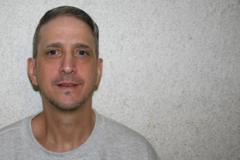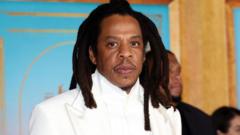HOUSTON (RTWNews) — The Texas Court of Criminal Appeals has once again paused the execution of Robert Roberson, who was to become the first person in the U.S. put to death for a murder conviction tied to shaken baby syndrome. Scheduled for execution on October 16, this turn of events marks the third time Roberson has received a stay since his legal odyssey began over nine years ago.
Roberson's defense team has previously intervened on multiple occasions, including a notable effort last year from a bipartisan group of Texas lawmakers convinced of his innocence. They have pressed for better examination of the evidentiary basis for his conviction, particularly after a 2013 Texas law enabled convicts to seek relief when the scientific credibility of evidence is undermined.
The latest decision by the Texas Court of Criminal Appeals came after they referred back to a previous case which led to the exoneration of another man, Andrew Roark, under similar circumstances. Roberson’s legal team argues that both cases share critical undifferentiated aspects, supporting the contention that new scientific opinions could lead to a re-evaluation of his conviction.
Gretchen Sween, one of Roberson's attorneys, emphasized after the ruling that “he is actually innocent” and expressed hope of ultimately proving Roberson’s innocence.
Roberson’s defense posits that his previously undiagnosed autism affected his demeanor, making him appear less concerned about his daughter at the time of the incident, which officials interpreted as guilt. For instance, medical records showed he was diagnosed with autism only in 2018, years after his conviction.
As this complex legal battle unfolds, various stakeholders maintain differing views. Matthew Bowman, Nikki Curtis's half-brother, expressed disappointment in the court's ruling, insisting he believes Roberson should be executed based on the evidence presented in the trial.
The situation reflects ongoing debates surrounding shaken baby syndrome, which has faced increasing skepticism from both legal and scientific communities in recent years, questioning the validity of certain convictions.
With the appeals court's latest ruling, Roberson's case will undergo a review process to possibly secure him a new trial, and stakeholders on both sides of the issue are poised for what comes next. Advocates for Roberson, which include a diverse coalition of lawmakers and notable figures, continue to champion for justice amid a fraught legal backdrop.
Roberson's defense team has previously intervened on multiple occasions, including a notable effort last year from a bipartisan group of Texas lawmakers convinced of his innocence. They have pressed for better examination of the evidentiary basis for his conviction, particularly after a 2013 Texas law enabled convicts to seek relief when the scientific credibility of evidence is undermined.
The latest decision by the Texas Court of Criminal Appeals came after they referred back to a previous case which led to the exoneration of another man, Andrew Roark, under similar circumstances. Roberson’s legal team argues that both cases share critical undifferentiated aspects, supporting the contention that new scientific opinions could lead to a re-evaluation of his conviction.
Gretchen Sween, one of Roberson's attorneys, emphasized after the ruling that “he is actually innocent” and expressed hope of ultimately proving Roberson’s innocence.
Roberson’s defense posits that his previously undiagnosed autism affected his demeanor, making him appear less concerned about his daughter at the time of the incident, which officials interpreted as guilt. For instance, medical records showed he was diagnosed with autism only in 2018, years after his conviction.
As this complex legal battle unfolds, various stakeholders maintain differing views. Matthew Bowman, Nikki Curtis's half-brother, expressed disappointment in the court's ruling, insisting he believes Roberson should be executed based on the evidence presented in the trial.
The situation reflects ongoing debates surrounding shaken baby syndrome, which has faced increasing skepticism from both legal and scientific communities in recent years, questioning the validity of certain convictions.
With the appeals court's latest ruling, Roberson's case will undergo a review process to possibly secure him a new trial, and stakeholders on both sides of the issue are poised for what comes next. Advocates for Roberson, which include a diverse coalition of lawmakers and notable figures, continue to champion for justice amid a fraught legal backdrop.

















